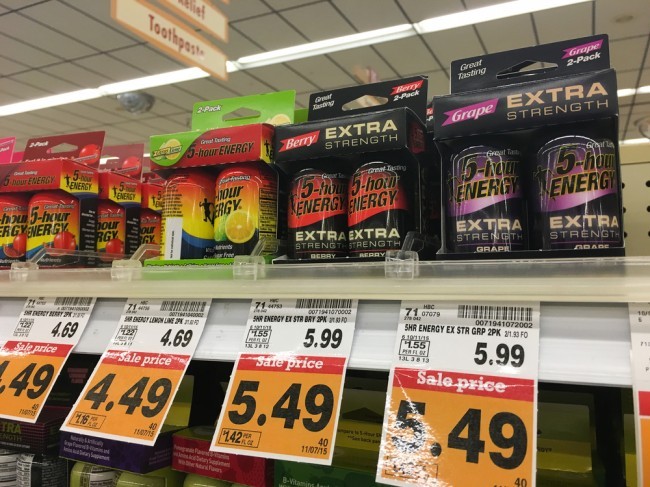
For years, we’ve been inundated with 5-Hour Energy commercials that tout the caffeine shot as a better alternative to coffee. In many of the TV spots, we see office workers seemingly about to pass out after a long day of filing, data-entry or whatever other generic jobs people who work in offices do.
How embarrassing would it be to fall asleep sitting up at your desk? You’d do that awkward head bobbing thing and everyone would stare at you. You’d probably never hear the end of it. You’d be known as the guy who drooled on his keyboard for the rest of the time you worked there. You might as well just get your resume ready because it’s time to look for another job.
To fight the clearly inevitability of falling into a sleeping beauty-like deep slumber at work you could grab a cup of coffee. But, when it wears off you’ll just crash even worse. Thus, through the magic of comic exaggeration of normal office situations, 5-Hour Energy claims that it’s product gives drinkers energy and focus without the much feared crash that normally comes with coffee. What a wonderful, magical product.
If it sounds too good to be true, that’s because it is.
According to a Washington State judge, 5-Hour Energy has consistently lied about whether or not their energy booster is better than coffee. In fact, it turns out it really isn’t better and now the company that owns 5-Hour Energy (Living Essentials LLC) has been ordered to pay $4.3 million for their incorrect boasts.
In the lawsuit, filed back in 2014, the Washington State Attorney General said that Living Essentials was in violation of the Consumer Protection Act because of their unfounded claims. The ruling found that the company was at fault when
“it aired or published ads that represented that the energy, alertness and focus from 5-Hour Energy lasts longer than a cup of coffee because of the synergistic or interactive effects of caffeine, B vitamins, and nutrients in the product.
The company also violated the Consumer Protection Act for one of the dumbest reasons. It claimed that its Decaf 5-Hour Energy drink would also wake you up and give you a whole mess of energy. The main sticking point for the state was the word “decaf.” The assumption is that the drink doesn’t contain a hint of caffeine so where does the energy come from?
In it’s place, the company added taurine. But, according to the State, the drink didn’t contain remotely enough taurine to actually give drinkers a real boost of energy. The reason people continued to drink this version was likely due to the placebo effect. Since they assumed they would get energy from the drink, they actually felt energized. But, you gotta tell people if you’re doing that.
One of the biggest and most interesting violations was the idea that 5-Hour Energy was a doctor recommended alternative to coffee. They pointed to the “Ask Your Doctor” advertisements in which actual doctor’s answers were skewed in a way to make it seem like they really believe people should start their workdays by chugging 5-Hour Energy.
“Due to the phrasing of the questions that preceded this question, a ‘no’ response to this question suggested that the responding doctor would instead recommend a high fat, high calorie, or high sodium energy supplement,” the judge said.
All this tells us is that, even though they keep trying, it’s quite possible that nobody will ever create a better energy boaster than good, old fashioned coffee. Oh wait, we forgot about sleep. Yes, try sleep. It’s actually doctor recommended.






